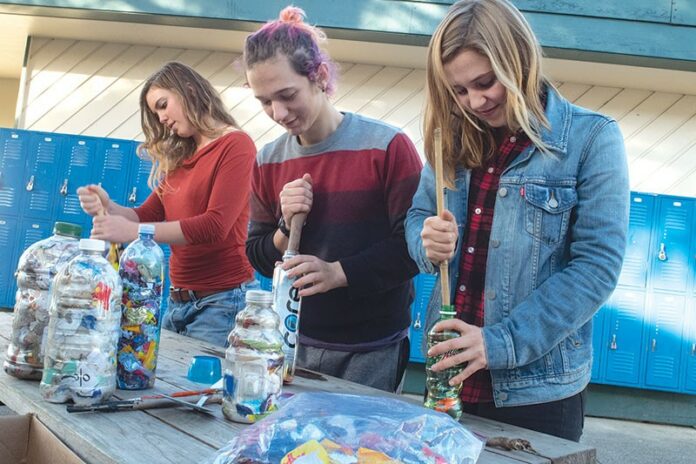The thing about unsustainability is that it’s, well, not sustainable. Students at Rohnert Park’s Credo High School are embracing that truth as an opportunity to transform their school and the world beyond.
Credo, a Waldorf-inspired public charter school, has adopted the One Planet Living (OPL) initiative and hopes to become the world’s first One Planet school. The ecological impacts of their efforts are being overseen by Bioregional, a London-based nonprofit that created the OPL initiative.
There are 10 guiding principles of OPL, which include health and happiness, equity and local economy, land use and wildlife, zero waste and zero carbon. Every OPL partner develops an action plan centered around these principles.
“My hope is that Credo will become the model for OPL schools throughout the world, and that our students and graduates can help other schools locally and worldwide to meet the OPL principles,” says Credo principal Chip Romer. “Credo students will spend four years within an OPL community, and the principles will inform our students, who will then disseminate those values as they move out into the world.”
One Planet Living was founded in 2003 during the creation of the BedZED eco-village in London and is guided by the philosophy that to succeed, sustainable living must be easy, attractive and affordable. “There is a long way to go, but there is no doubt it’s possible to be happier, healthier and more sustainable at the same time,” says Pooran Desai, co-founder of Bioregional.
Credo was founded in 2011 with 40 students and now enrolls about 300. The curriculum focuses on agricultural, economic, environmental and social sustainability and is already in line with many of OPL’s principles. It’s the only school to receive a Green Business Award from the Sonoma County Economic Development Board.
“Sustainability must be built into the curriculum,” says Marika Ramsden, Credo’s OPL director. “It’s hard not to be invested because it’s our future.”
OPL is already being put into practice in the classroom. Every freshman takes a class on climate change and one-third of the curriculum focuses on OPL ideas. In chemistry, students are scaling down the use of acids and heavy metals. In woodworking, more than 95 percent of materials are coming from “street” trees destined for firewood or landfill.
Reducing the consumption of nonrenewable energy sources is one of the greatest challenges, particularly achieving zero waste, says Romer. Credo will be 100 percent solar-powered once it moves to Sonoma Mountain Village in 2017.
“This generation has heard so much about the challenges and issues, and they’re ready to change the story,” says Ramsden. “They’re hungry for creative solutions instead of doom and gloom.”











